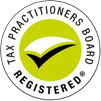When planning to set up a business in Australia, choosing the right business structure is important because each type will have different implications on your tax, operating costs, protection of assets and how other businesses deal with you. Depending on your business goals, the right business structure will eventually save you money.
Sole trader
This is a simple business structure where you operate, control and manage all aspects of your business with or without employees. It is the choice of small and startup businesses because:
- It is easy to set up with few legal and tax formalities required;
- it is an inexpensive structure;
- you maintain full control of the business;
- you can receive full benefits of the profits from the business;
- you can retain all after-tax gains when you sell the business.
Running a business as a sole trader has its limitations which you should consider:
- Limited funding sources;
- heavy workload if you don’t have employees to help you;
- you bear all the business liabilities, debts and losses if things go wrong;
- unpaid business creditors can go after your private assets such as your home and vehicles. (i.e. your personal assets are at risk)
Partnership
A partnership consists of two or more people who as partners will share in the business finances, workload, liabilities and legal responsibilities. It is also easy and inexpensive to set up. Moreover, you and your private assets may be exposed to financial risk when debts of the partnership are not settled and its creditors decide to pursue you legally as one of its owners.
Company
This structure is incorporated or set up as a separate legal entity that is regulated by the Australian Securities and Investment Commission. Larger sized businesses choose this type because it has:
- Greater access to capital for running the business;
- the owners who are called shareholders enjoy protection from the company’s creditors and legal responsibilities and are not personally liable for its debts;
- private assets of shareholders are generally protected from company creditors.
Trust
When you operate a business as a trustee, you hold property or income for the benefit of beneficiaries. Because a trust company enjoys limited liability, the private assets of the beneficiaries and trustee are protected against debts and legal responsibilities.
Unlike the sole trader and partnership structures, setting up and maintaining a company or a trust can be expensive and entail more tax and administrative annual paperwork. On the tax aspect, a sole trader, an individual partner and trust beneficiary includes any income or amount received from the business in their personal tax returns while the company pays a separate income tax on its income. A shareholder who is employed by the company is also subject to income tax on compensation received.
Each business structure in Australia has its own advantages and limitations. Choose the best structure that can help you achieve your financial goals.




